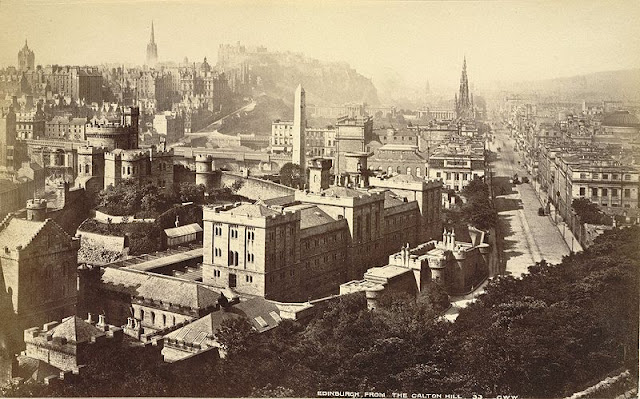I dragged my emaciated body around to the Museum this afternoon having been summoned to attend by the lovely lass on the door. You see on Saturday, when I ought to have been busy with the afternoons football, I was dragged out to help the lass cover for her absent helpers. She had been let down by other volunteers rudely taking the long weekend off. Tsk! Being the kind, thoughtfull, (trapped) kind of man I found myself with her until closing time. This was in fact no hardship, but indeed a pleasure, however I made the kind, helpful, offer to attend if she was ever desperate for cover. Silly boy! The girl was hardly in the building this morning, I suppose had not even finished the mornings gossip, and she was on the phone asking when I could be there. So that's three more dates fixed in the diary, what have I let myself in for?
I wandered around the museum, mentioning to another captured volunteer that later I may be able to help with some painting, he kept his doubts well hidden, and I strolled around looking into the past. Much better than watching television I thought and I was right. A few coins, rings and objects, possibly idols, from the dim and distant past were on show. Fragments of live lived here during the Bronze Age, among heavy wooded land with some animals possibly, maybe a pig or a cow. Urns and large pottery vessels indicate how life, while changing, remains at heart the same. Water once collected from a stream and carried to the top of a hill was later pumped nearer to the homes. Vessels to store goods, others to cook, trinkets to decorate the ladies, all reveal changing tastes and quality of life, but at heart the people remain the same. Bronze Age or Roman, Medieval or Victorian, people never change.
The weaving machine from the mill that once earned a lass five shillings a week for her ten hour day stands ready. Here dark black cloth, 'crape,' was manufactured during Victoria's day to supply the need for funeral wear. Courtauld's employed hundreds of people in their mills and made themselves very rich with the cloth developed here. The fashionable Victorian's would not be seen dead in anything else. The other mill, Warner's, produced high quality silk weaving cloth. These weavers were men for the most part and the quality was such that the Royal Family made use of their services. The Warner's Archive contains the array of designs highly skilled weavers gave to the world. Metal windows were a radical development at the turn of the century and Crittall's manufactured them here in the town until recently. Buildings designed during the twenties often contained these windows and a great many are now 'listed' as important for our heritage. The 'Titanic' also had windows designed and erected by Crittall's, these failed to keep the ship afloat however.
This is the Victorian classroom. Schools bring groups of kids, dressed in mock Victorian garb, to learn how education was taught in times past. It is a bit worrying that those desks were awfully like the ones we had at school! One 'teacher' taking such a 'class' would indicate the pupils feet and ask "Shoes? You have shoes?" This would make them realise that in the past kids their age did not possess shoes unless very wealthy! Many indeed worked very long hours until education of sorts became compulsory.
I enjoyed my wander (you will note I have not mentioned the excellent new Great War exhibit as I am not one to bore you with going on about that) especially as I have not got out much in recent days, the bug causing me to avoid eating for a day or two. So it was good to refresh the mind with thoughts of the hard lives lived in the past, the benefits we have, and while we fear a price increase of 20 or 30 pence on bread because of weather affecting the harvests we know we can afford basic foods for the most part, in 1900 many could not! I fear some are indeed in that situation again. Visit your nearest museum, and find a life!







.JPG)






















